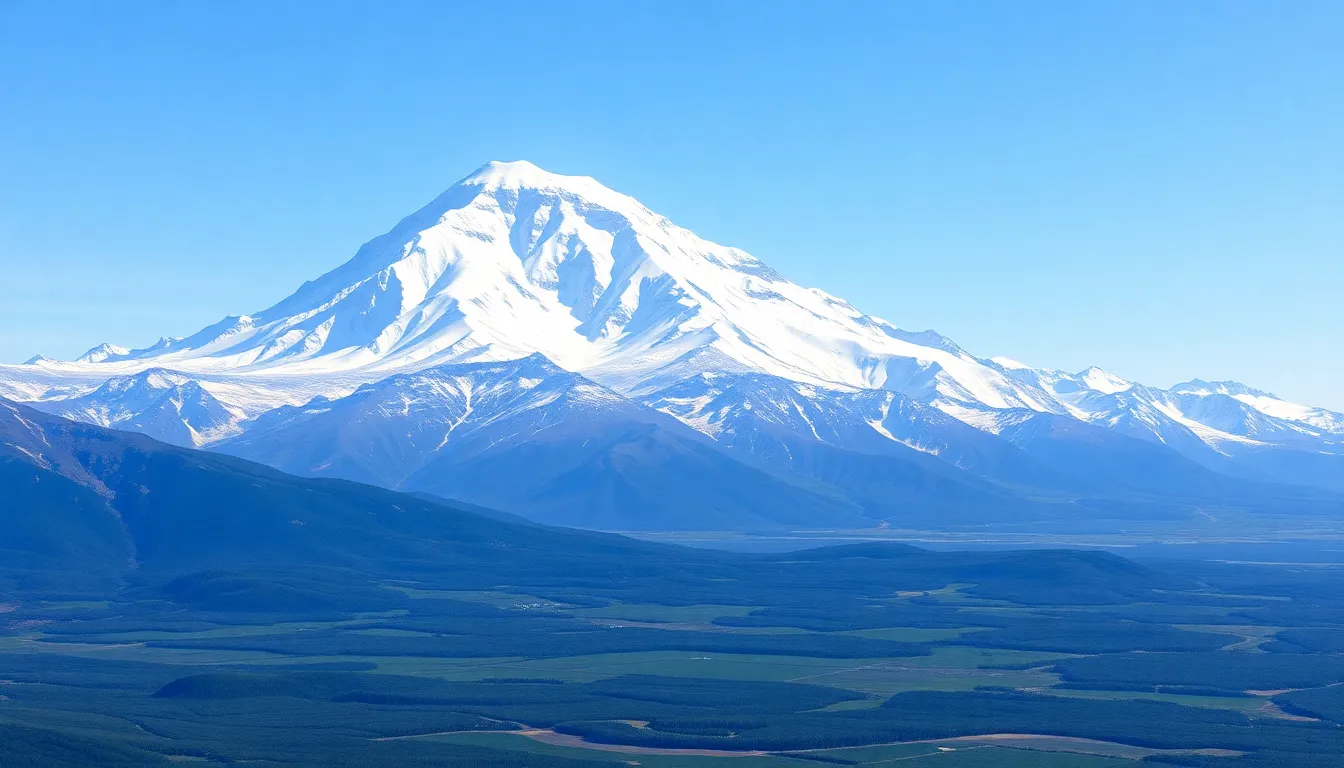Table of Contents
ToggleMount McKinley, now known as Denali, stands as a majestic giant in Alaska, but its name has sparked quite a debate. Many wonder who this towering peak was named after and why the name change matters. Was it a tribute to a president, a forgotten hero, or perhaps a clever marketing ploy gone awry?
As the highest mountain in North America, it deserves a name that reflects its grandeur and history. The story behind its name reveals not just a connection to politics but also a clash of cultures. Buckle up for a journey through history that’s as steep as the mountain itself. Get ready to uncover the surprising truth behind Mount McKinley’s name and why it’s more than just a label on a map.
Overview of Mount McKinley
Mount McKinley, known as Denali, stands tall as the highest peak in North America, reaching an elevation of 20,310 feet. Originally, the mountain was named after William McKinley, the 25th President of the United States. This name was given in 1896, during McKinley’s campaign for the presidency. The designation honored him as a political figure, but the mountain holds a deeper significance.
Denali, which translates to “the high one” in the native Koyukon language, reflects the cultural heritage of Alaska’s indigenous people. Amid debates regarding the name, many believe that using Denali recognizes and respects this rich history. Political discussions around the name change began in the late 20th century, with the U.S. government eventually recognizing Denali officially in 2015.
Though Mount McKinley reflected a national homage, Denali signifies the mountain’s profound connection to the land and people. The current name also emphasizes the importance of acknowledging local cultures, bringing greater awareness to the traditions surrounding this majestic peak. The mountain has become a symbol of both natural beauty and cultural identity.
Visitors flock to Denali National Park, drawn by its natural allure and the challenge it presents to climbers. It attracts adventurers from across the globe, eager to experience the breathtaking landscapes, wildlife, and the spirit of exploration. Amid these experiences, the ongoing discussions about the name underscore the conversation about representation and recognition in American geography.
Historical Context

Mount McKinley, now recognized as Denali, holds a rich historical significance tied to its naming conventions and cultural heritage.
Early Names of the Mountain
In the 19th century, explorers and surveyors referred to the peak using various names. The most prominent early name, “Denali,” originated from the Koyukon people, who inhabited the region. “Dinale” translates to “the high one,” symbolizing the mountain’s grandeur. Mount McKinley, named in 1896, served as a political gesture honoring William McKinley during his presidential campaign. Prior to this naming, the peak was associated with local indigenous traditions and stories. The transition from its early names highlights the shifting perspectives on identity and belonging within Alaskan culture.
Significance of the Name Change
The decision to rename Mount McKinley back to Denali in 2015 underscored cultural respect and acknowledgment of indigenous heritage. This change aimed to embrace the mountain’s original name, fostering a renewed connection to local traditions. By officially recognizing Denali, the U.S. government validated the Koyukon people’s historical ties to the land. This name shift also sparked broader discussions around representation in geographical naming. Acknowledging Denali goes beyond mere preference, representing a reconciliation with the past and empowering native voices in contemporary America.
Who Was Mt McKinley Named After?
Mount McKinley, now known as Denali, was named in honor of William McKinley, the 25th President of the United States. His presidency was marked by significant political developments and shifts in American society.
William McKinley’s Background
Born on January 29, 1843, in Niles, Ohio, McKinley became a prominent figure in American politics. He served in the Civil War, rising through the ranks to earn a reputation for leadership. Afterward, McKinley forged a successful political career, starting in the U.S. House of Representatives. He eventually ascended to the governor of Ohio before his presidential election in 1896. His background in commerce and protectionist policies resonated with many Americans, further shaping his political identity.
Contributions to American History
McKinley’s contributions to American history remain noteworthy. His leadership during the Spanish-American War marked a key transition toward global engagement for the United States. This war not only expanded American territories, including Puerto Rico and the Philippines, but it also symbolized a new era of American imperialism. McKinley also championed economic policies that boosted industrialization, enhancing America’s status as a leading global power. His presidency laid crucial groundwork for the economic landscape in the 20th century.
Controversies Surrounding the Name
Discussions surrounding the name of Mount McKinley reveal deep cultural tensions and regional pride. The mountain’s original indigenous name, Denali, carries significant cultural weight for the Koyukon people.
Indigenous Names and Cultural Significance
Denali translates to “the high one” in the Koyukon language, emphasizing the mountain’s revered status within indigenous culture. Such names serve as a connection to the land, reflecting the deep-rooted heritage and spiritual beliefs of Alaska’s native tribes. Respecting and using Denali strengthens the cultural narratives and histories tied to this majestic peak. Recognition of indigenous names not only honors tradition but also validates the ongoing struggles of native communities seeking acknowledgment for their historical ties and contributions.
Modern Arguments for Name Change
Advocates argue that restoring the name Denali aligns with broader movements for social justice and cultural recognition. Voices in Alaska emphasize the importance of reclaiming indigenous heritage, shifting the focus from political tributes to the cultural significance of the mountain. The 2015 name change by the U.S. government marked an official recognition of this vital cultural aspect. Furthermore, many believe using Denali encourages appreciation for local traditions and the natural landscape, fostering respect among visitors and climbers alike.
The journey of Mount McKinley’s name reflects the ongoing dialogue about cultural identity and historical recognition. Transitioning from a tribute to President McKinley to its original name Denali signifies a deeper respect for the indigenous heritage of Alaska. This change not only honors the Koyukon people’s connection to the land but also highlights the importance of acknowledging diverse narratives in American history. As visitors explore Denali National Park, they engage with a landscape rich in cultural significance, transforming their experience into one that respects and celebrates the local traditions. The mountain stands not just as a natural wonder but as a powerful symbol of cultural pride and identity.





